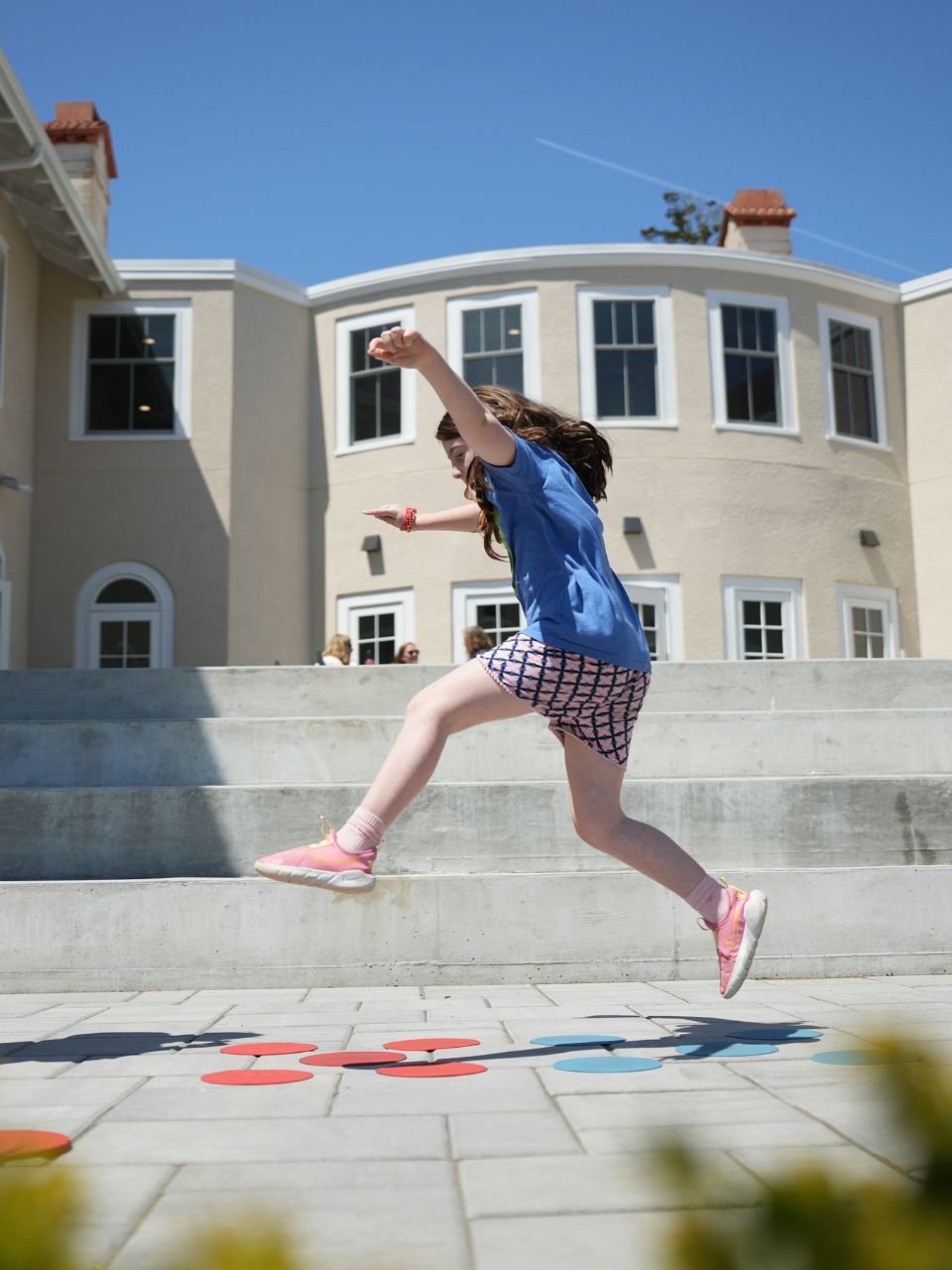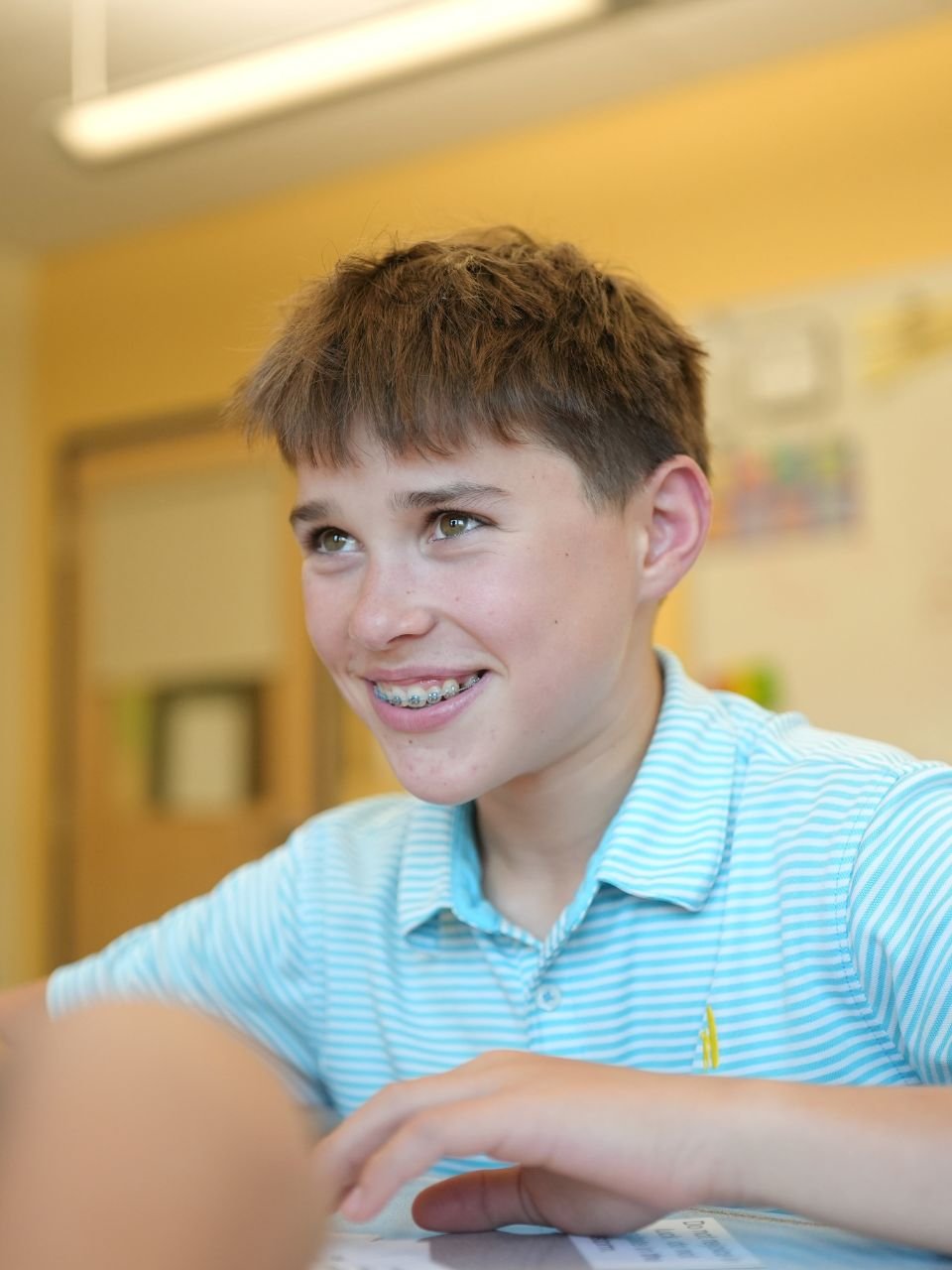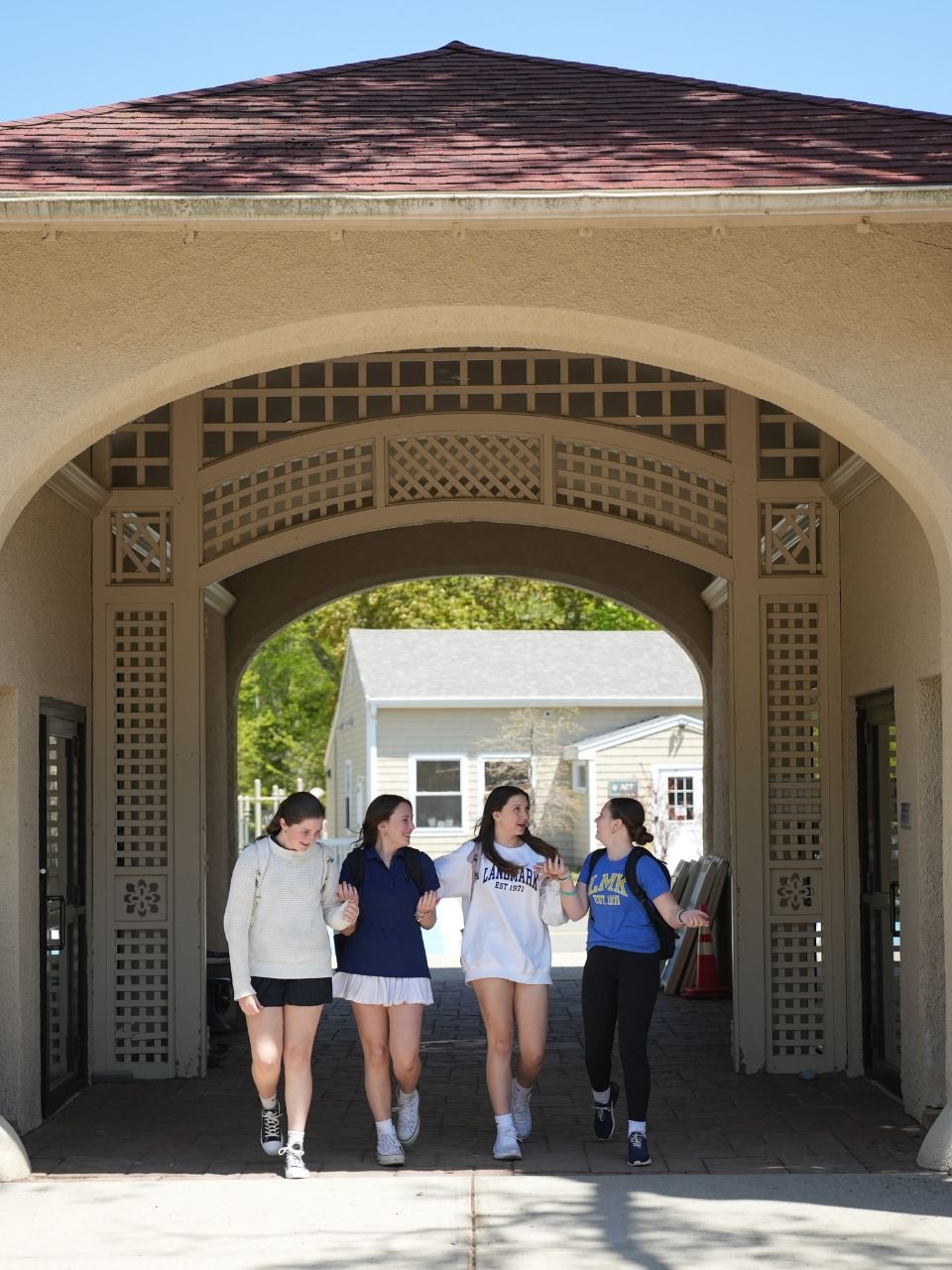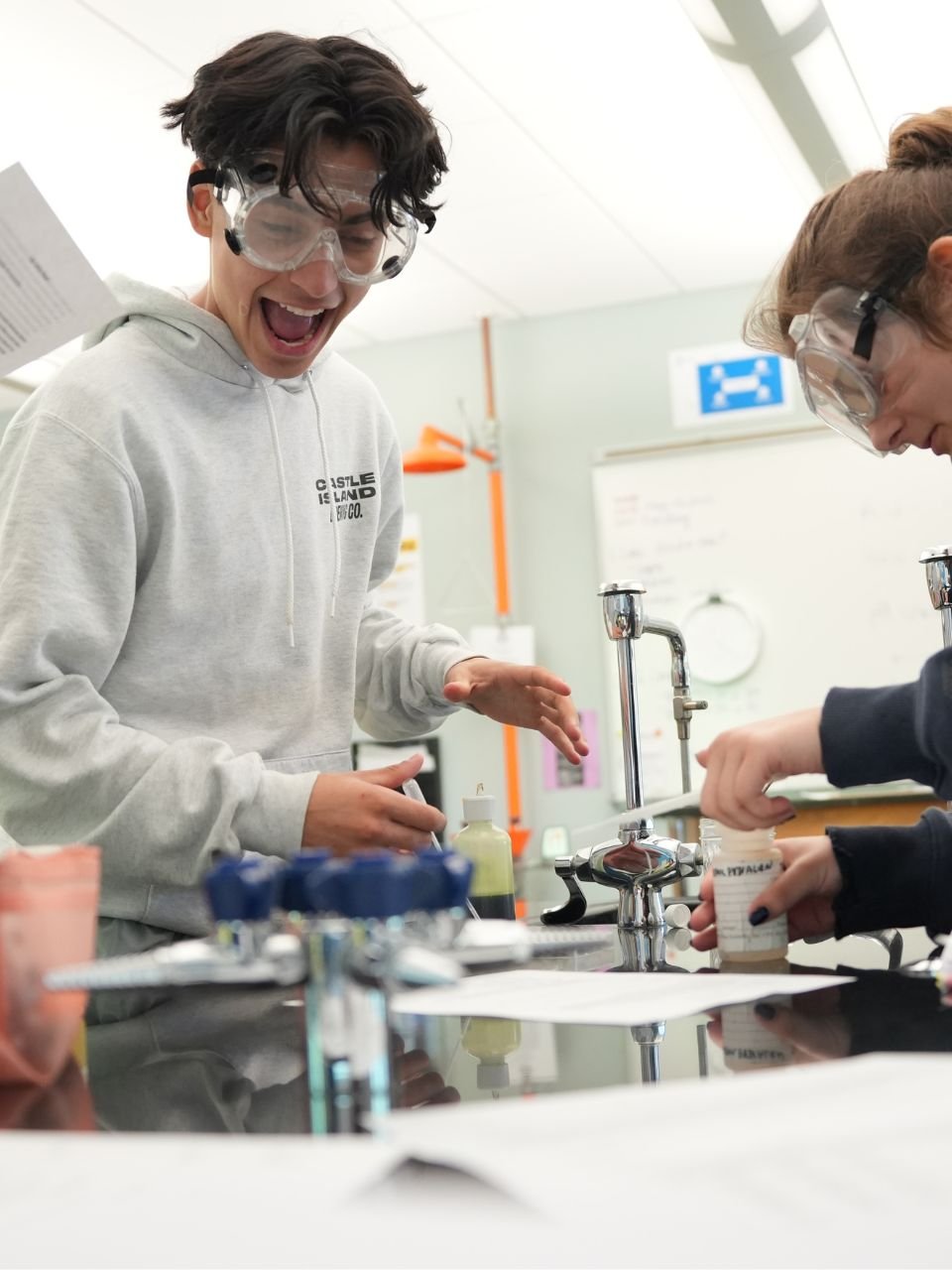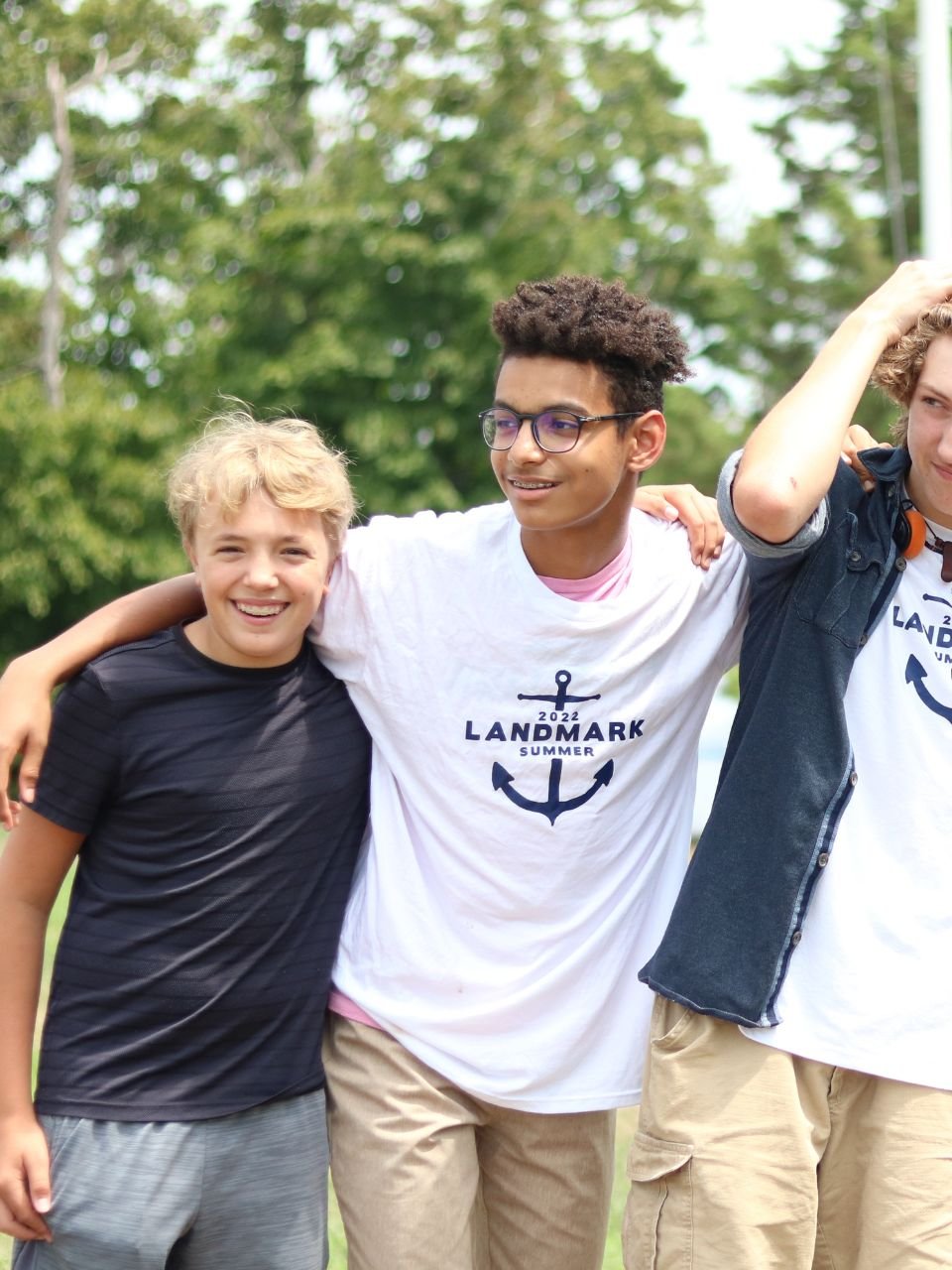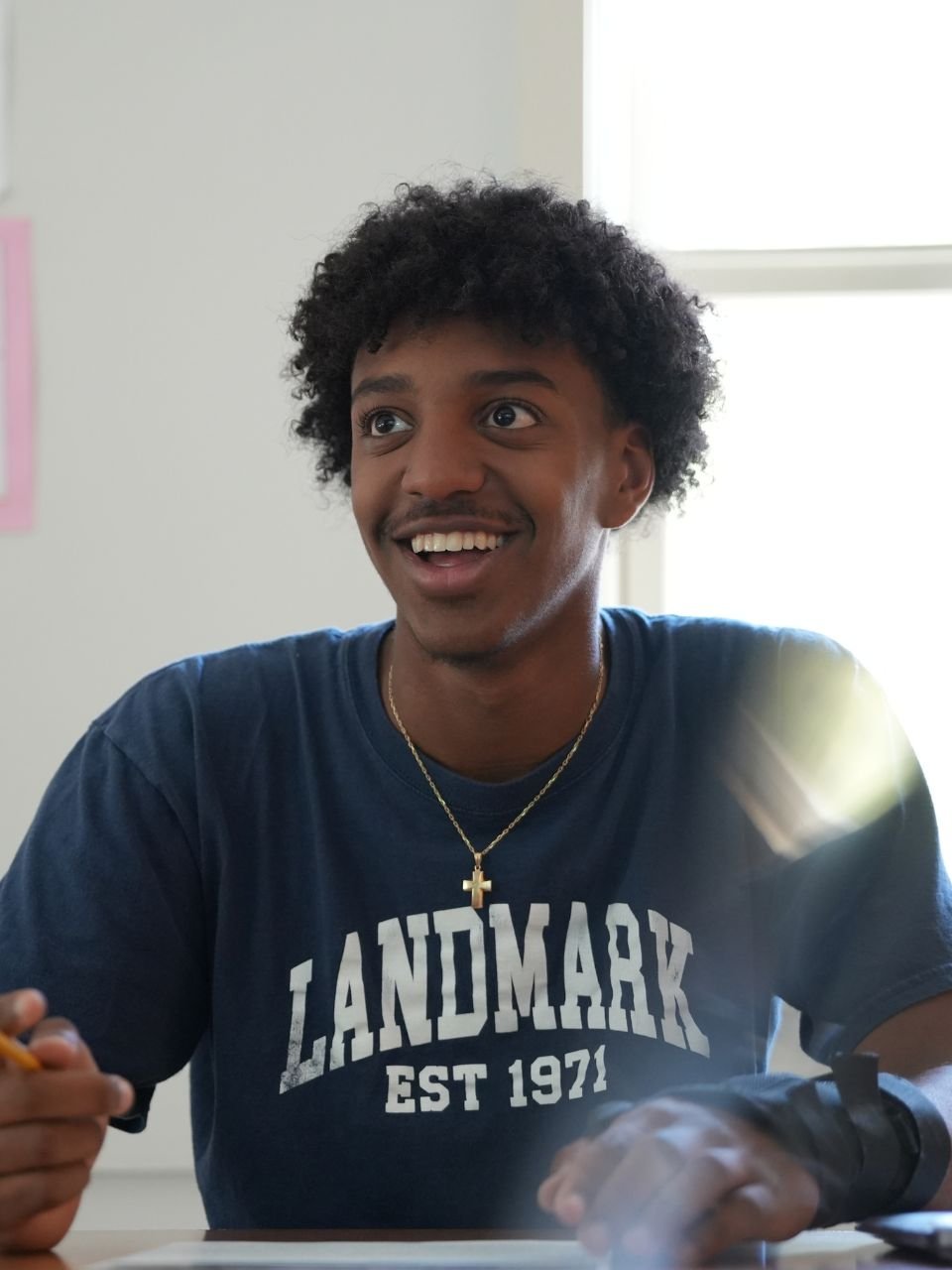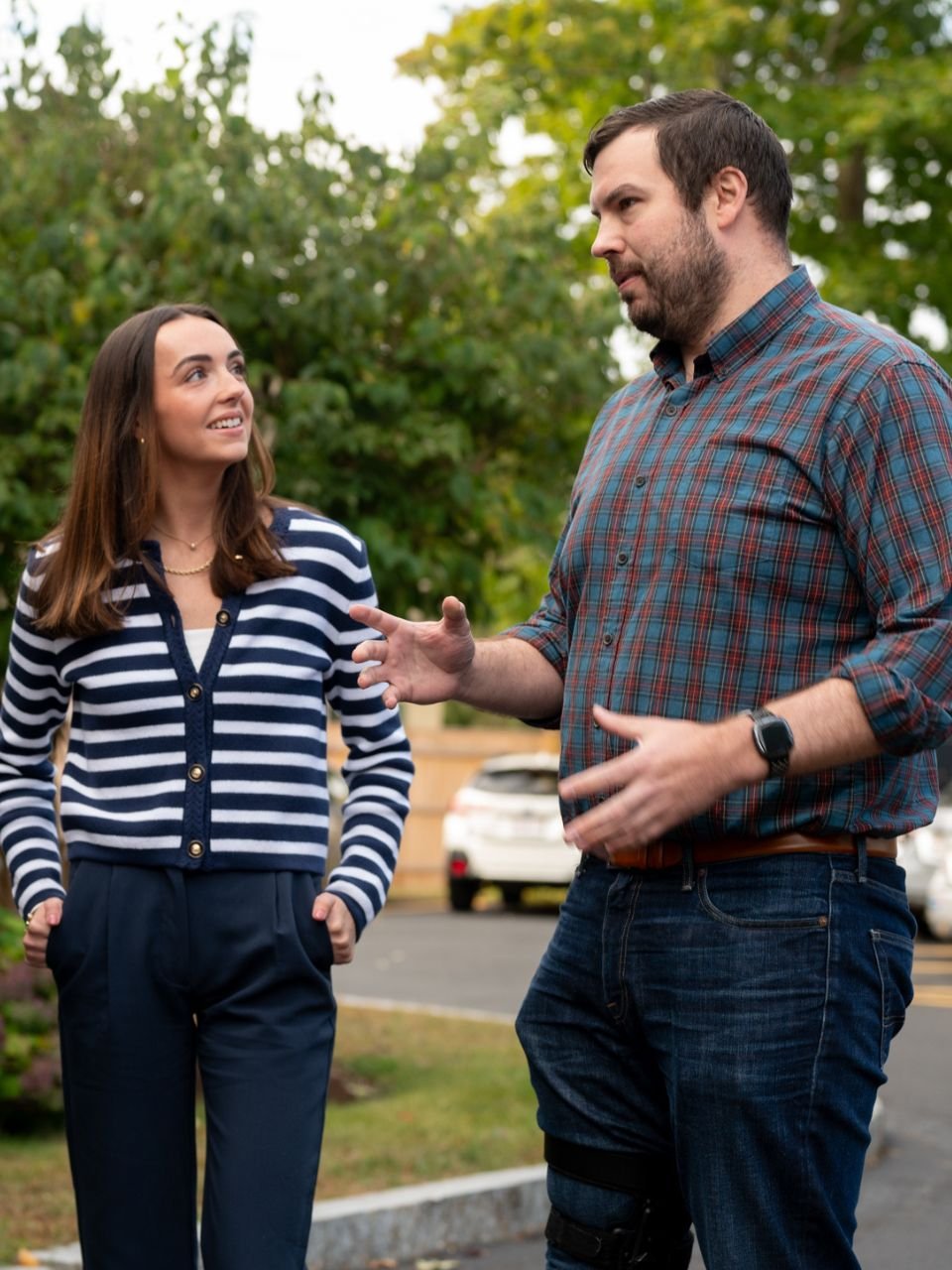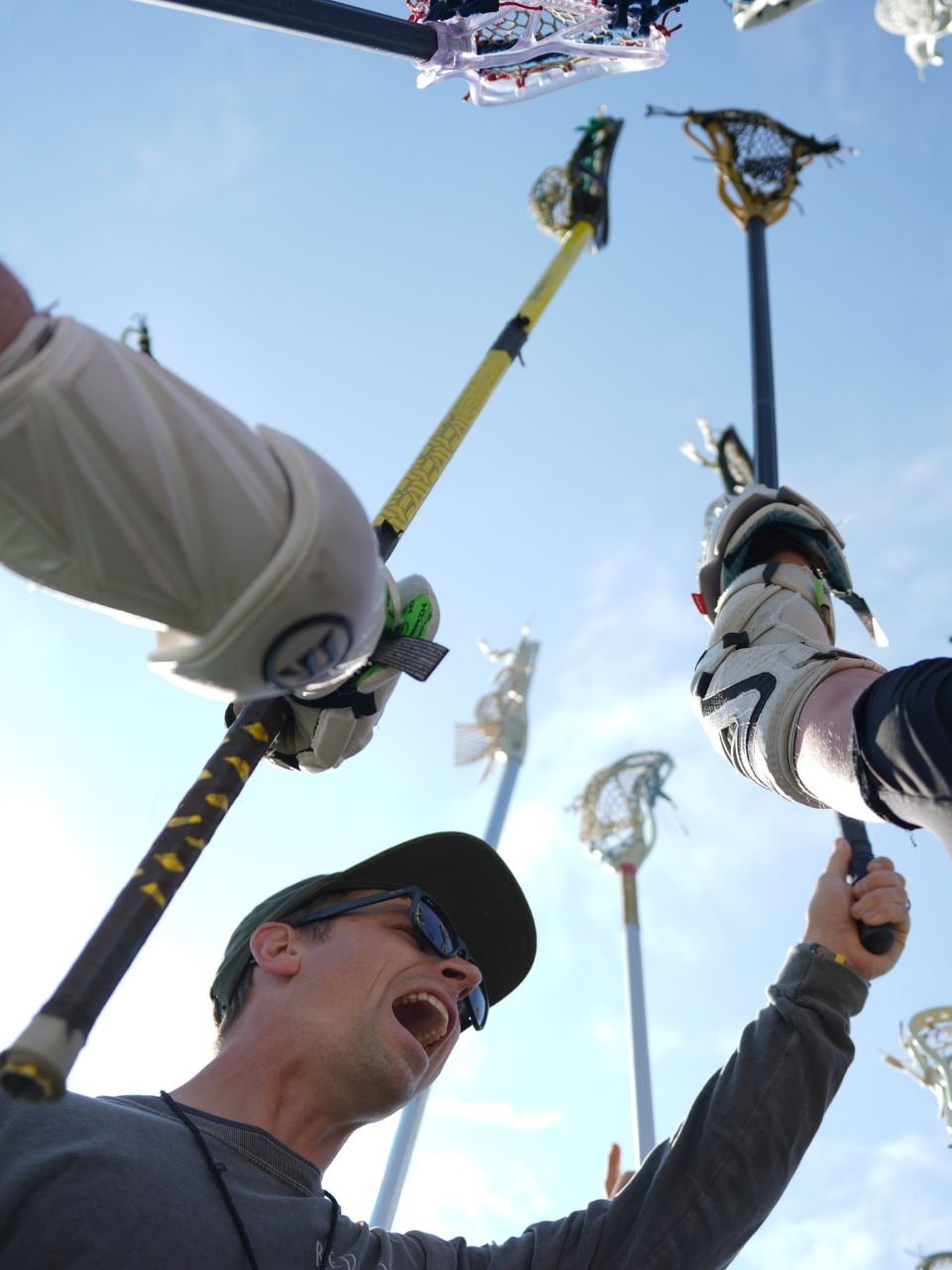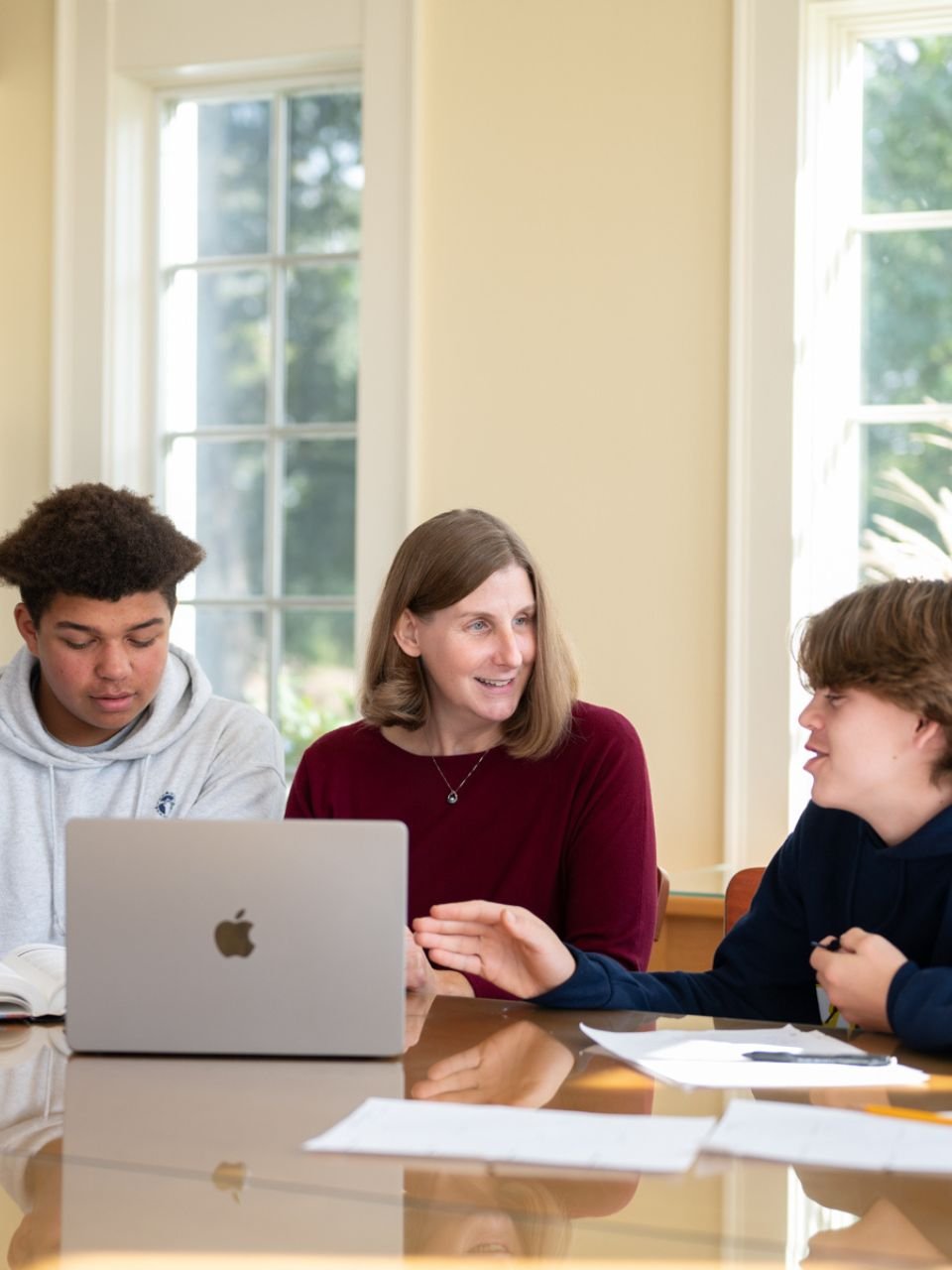- Our School
- Our Advantage
- Admission
- Elementary•Middle School
- High School
- Summer
- Giving
- Parent Resources
- For Educators
- Alumni
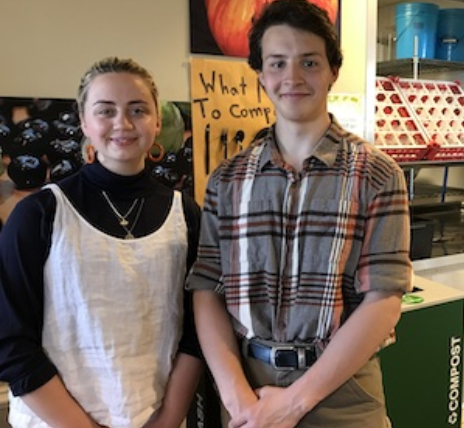
Landmark's Green Day
One of the cornerstones of Landmark’s approach is teaching self-advocacy and encouraging students to put the skill into practice. Isabel West ‘20 and August Reid ‘20 did just that when they recognized a problem on campus, sought a solution, and approached the administration with a proposal.
The problem was food waste. Tons of it. Day after day, Isabel and August watched as students dutifully cleared their plates of food scraps into trash cans. They were driven to eliminate the waste and reached out to Jennifer Kuhns, a science teacher at the High School. With her support, they began researching composting options in the area and took their plan to William Barrett, head of the High School.
"I grew up in a home where composting all of our food waste and eating leftovers to minimize our environmental footprint was the norm, so we had very little food waste," West said. "Once I came to Landmark, I was immediately struck by the amount of food being wasted on a daily basis. I learned that Ms. Kuhns had been pushing for a composting system for a long time, and she and I started meeting to talk about how make it happen."
Ms. Kuhns gave Isabel direction and encouraged her to take charge of the initiative. Isabel enlisted August, who shares her passion for environmental issues.
"When students become well informed about environmentally unsustainable behavior, they can make a huge impact!," Kuhns said. "I am proud of the efforts and the positive changes that Isabel and August are making in our community."
KEEPING IT LOCAL
After researching several composting companies, they decided on Black Earth, a company in Manchester-By-the-Sea, which provides sealable animal-resistant containers. Black Earth will make daily pickups Monday through Friday.
“Starting the process of composting was the easy part,” said August. “The hardest part of the entire composting campaign was connecting it with the school. The size of the school posed numerous problems, but the administration dealt with them.”
The cafeteria in Alexander produces approximately 750 pounds of food waste each week, according to David Seiter, director of facilities. That figure includes food thrown away by the kitchen staff and items discarded by people eating in the cafeteria. Because of health regulations, certain food items that sit out for prolonged periods cannot be donated or served at subsequent meals.
“I’m very excited about composting on campus,” Seiter said. “We’ve been trying to do this for years. The program is a result of a student-led initiative, which makes it even more exciting.”
August and Isabel worked with the administration to produce informational posters about the environmental impact of composting. Students and faculty members volunteered to guide peers through the composting process for the first few days of the program.
Isabel’s father taught her from an early age the benefits of composting. “Growing up with a father who was a huge composter, I knew this was doable.” Her family’s composting reputation earned Isabel and her a brother a spot on the 2008 composting episode of Curious George: “Much Ado About Nothing/What Goes Up.”
If composting proves successful, they hope to expand the program to the residences and the Elementary•Middle School.





